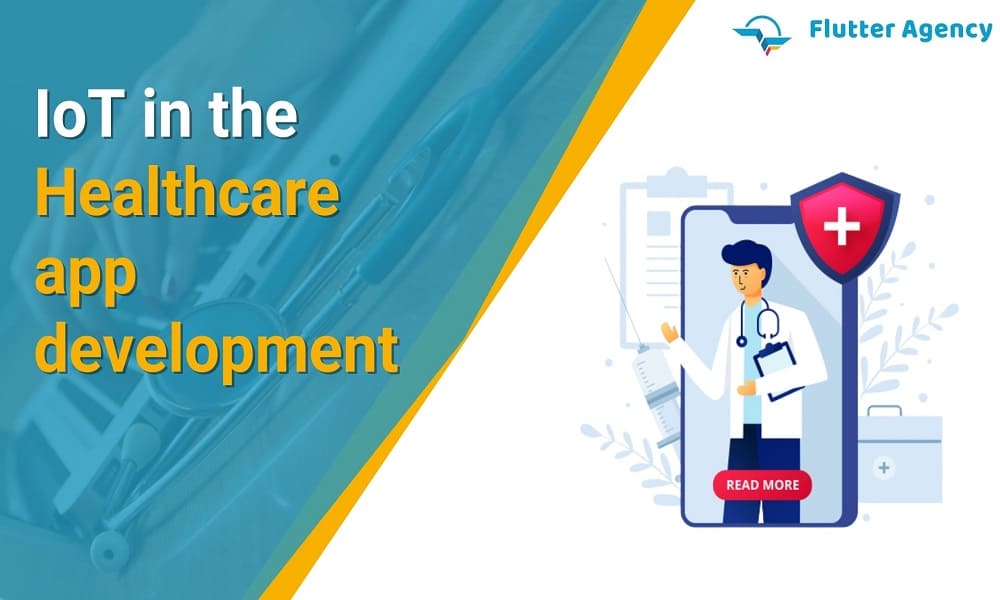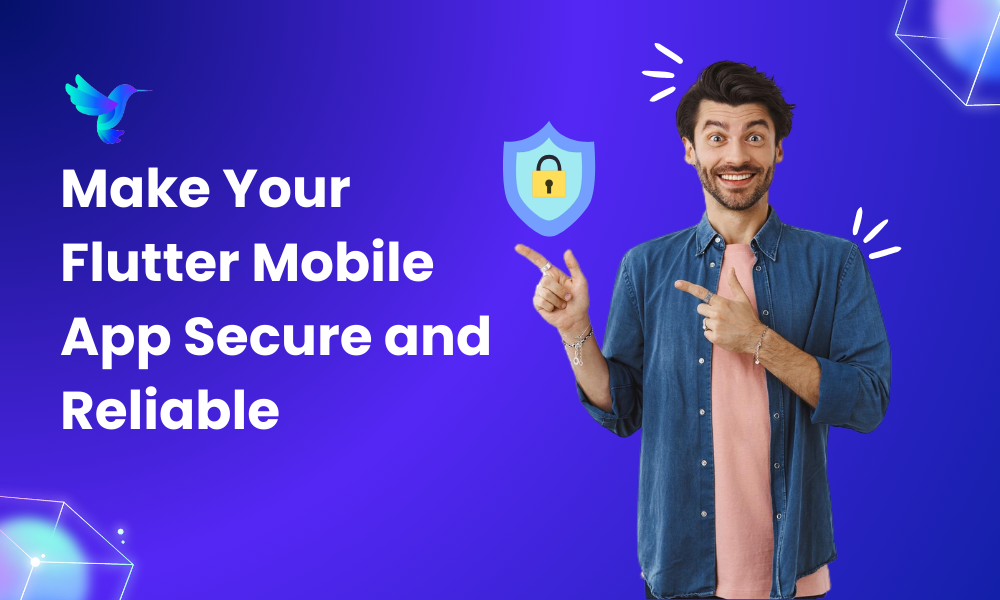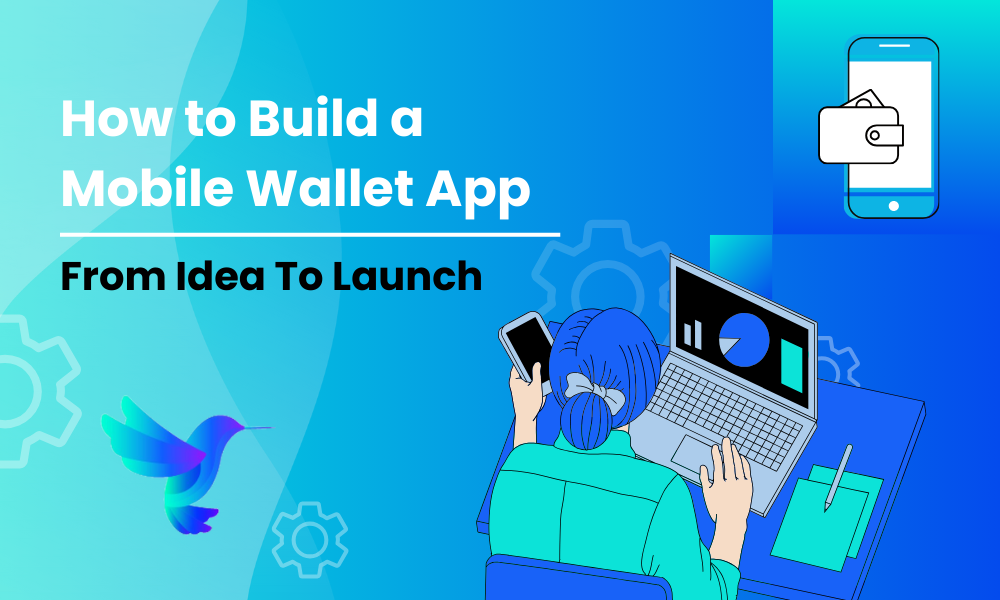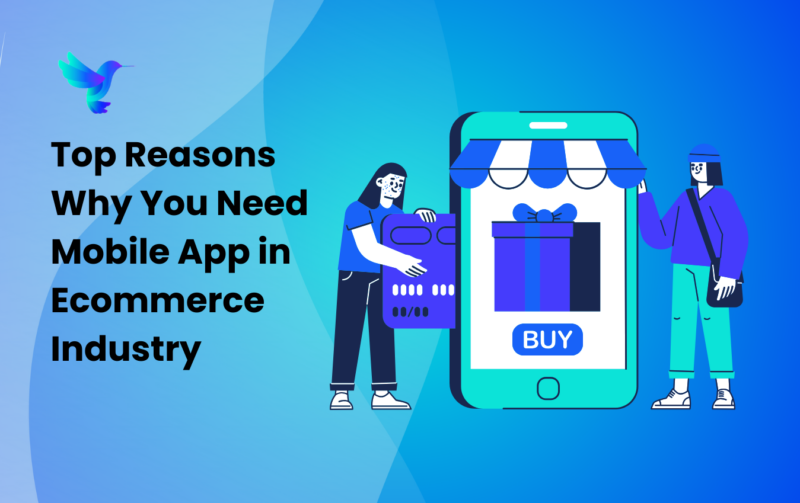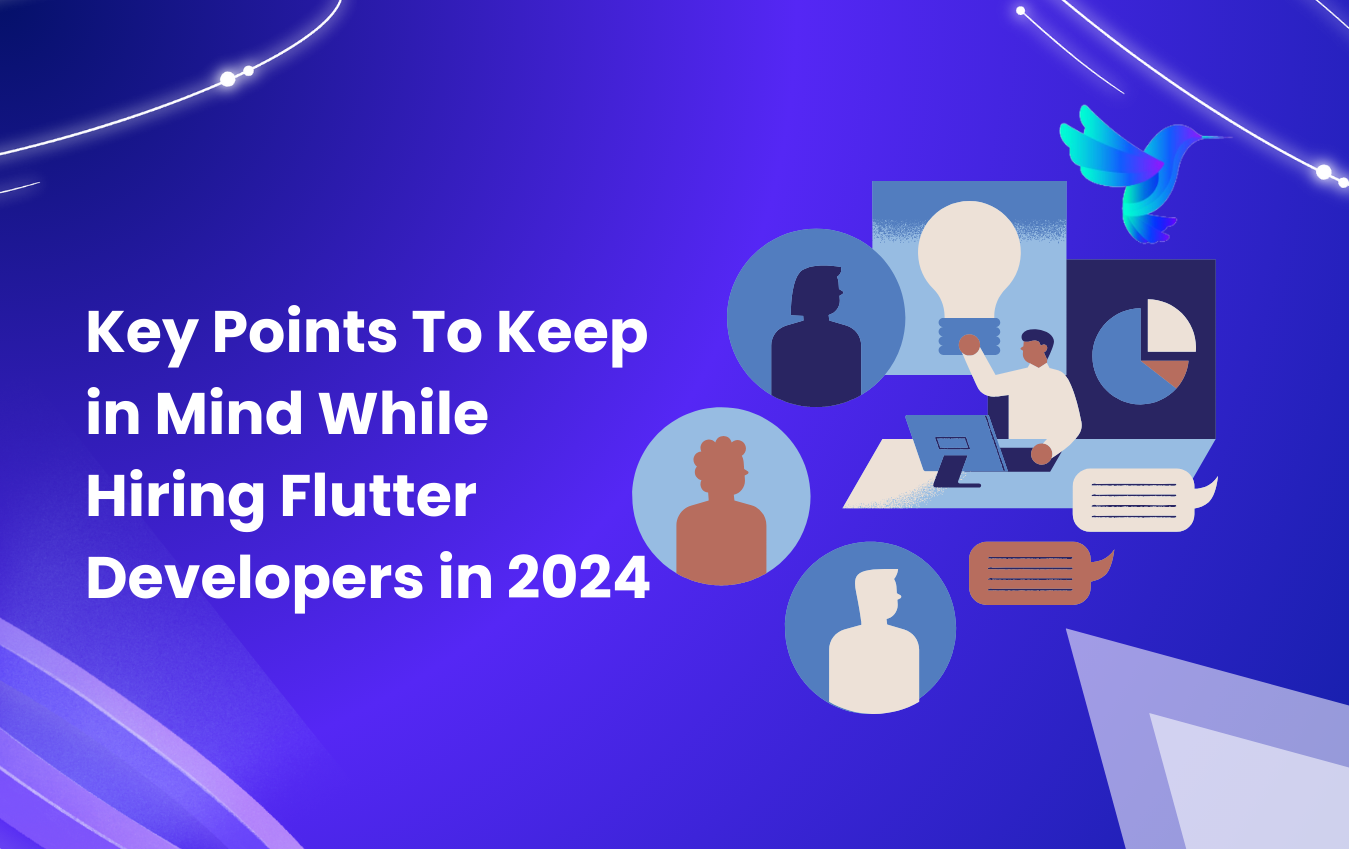Advantages of IoT in the Healthcare app development sector
The healthcare firm has faced several challenges during the pandemic. During COVID-19, challenges in this high sector like the aging population and the rise in chronic diseases. Due to this, healthcare services cost has increased rapidly and keeps them accessible to many people.
The app development company has developed the evolving technology that makes healthcare services more accessible, affordable, and cost-effective.
Undoubtedly, this diagnosis has taken a large number of hospital bills. But, healthcare mobility solutions have transformed the daily medical checkups or the diagnosis from hospital to home.
Here, the IoT has come into the picture with vast applicability and broad scope for treatment. The global IoT in the healthcare market is about USD 73.5 Billion. As per the Vantage Market research analysis, the size is expected to reach around USD 190 billion by 2028, with a compound annual growth rate (CAGR) of 25.9% during its forecast period.
How will IoT work in the healthcare sector?
An IoT device is considered a device with a radio or sensor which will interact with the physical world and transmit data with the help of the internet. These devices can capture various patient information or receive inputs from healthcare professionals or experts.
IoT devices will create an ecosystem where they can communicate and help healthcare professionals make accurate decisions. For instance, if an IoT wearable device makes the intelligent decision to contact the healthcare facility, the patient is experiencing any health-related emergency.
IoT gadgets also collect passive data and can send this data to the cloud, which aids the healthcare staff in making the proper and correct decisions. They can view the patient’s status or can call the ambulance if it’s needed.
What is the workflow process for the healthcare sector in IoT?
IoT devices operate in the following manner:
- IoT devices consist of a sensor that collects patient data or can capture information through doctors or nurses.
- After that, it utilizes AI-driven algorithms like Machine learning to analyze collected data.
- IoT devices decide if it is required to act on any given information or send it to the cloud.
- IoT devices also give accurate and valuable information to healthcare professionals and robots to make informed decisions.
What are the pros of IoT in healthcare app development?
IoT gives significant benefits to the healthcare development, and because of this, an organization is trying to integrate the IoT-based system. Here, the several advantages of IoT in healthcare have integrated with the technology due to its business value.
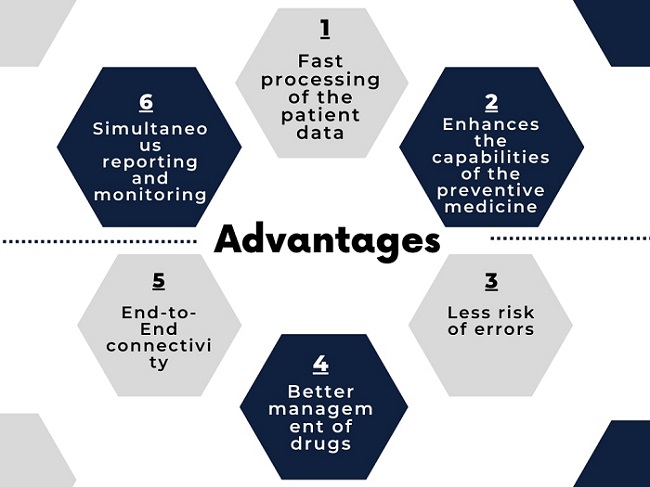
1. Fast processing of the patient data
IoT supports doctors in processing a large amount of patient data within a few minutes at ease without any effort. Suppose the Internet Of Things is merged with Artificial Intelligence and Machine learning. In that case, it will aid doctors in delivering all possible treatments quickly, as they will be able to get all the relevant information about patients’ health.
2. Enhances the capabilities of the preventive medicine
IoT provides required data to healthcare professionals, which will help them understand the patient’s condition and prescribe the medicine and treatment accordingly. This information allows doctors to observe the changes and note the potential issues without waiting for the symptoms to become more hazardous. We can combine the IoT with Artificial Intelligence in healthcare industry, which provides the benefits of data analytics and the essential information to determine preventative medicine for patients.
3. Less Risk of errors
Medical treatment and healthcare app development services permit the zero margin of error, as sometimes it is not achieved due to human involvement, as human errors occur. Sometimes, doctors may make a wrong measurement or conclusion; sometimes, the healthcare professionals may merge with the test results. An error due to human factors may lead to several serious consequences. These errors are eliminated with the proper checks and balances. The human experience is coupled with machine learning, enhancing diagnostic accuracy.
4. Better management of drugs
IoT-aided medical applications assist doctors and various healthcare providers in treating patients remotely, whether they have taken the drugs. If the patient has forgotten, the staff can call and remind the patient about a drug schedule. This whole procedure can also be automated, making it efficient and cost-effective, and reducing the unnecessary involvement of humans.
5. End-to-End connectivity
An IoT in healthcare applications uses the latest technology to improve data connectivity and sharing. IoT can use technologies such as Wi-Fi or Bluetooth to keep track of potential illnesses. Because of tracking, less time is consumed, as it is cost-effective and the treatment is affordable for patients.
6. Reporting and monitoring are simultaneously
The Internet of Things (IoT) in the healthcare industry has been a great help for doctors, as it monitors the vital parameters of patients in real-time. It also helps to prevent diseases like diabetes, blood pressure, asthma attack, and many more. Medical reports like ECG, blood sugar level, and X-ray scans are stored in the cloud and accessed with a mobile device remotely.
What is the future of IoT in the healthcare sector?
Some of the technologies are merged with IoT to provide innovative solutions in the future.
1. UAV Technology
UAV technologies have attracted the medical supply chain, and its future looks bright. Many startups have begun using drones to deliver medicine to patients’ homes, Particularly in remote areas. Also, drones are helpful even in transporting blood to its donor. IoT technology is combined with UAVs and drones to make this full service effective.
2. RFID technology
RFID technology is merged with the IoT solutions for healthcare to perform inventory management, patient monitoring, drug tracking, and various other activities. RFID labels and tags have different kinds of applications for hospital resource tracking and sanitation control.
3. Telemedicine
We can pair Medical IoT devices with mobile applications due to its unique model of communication and its connectivity between doctors and patients. It will grant permission to remote patients to make themselves available for clinical services along with its other services like primary care, monitoring, intervention, and reminders.
4. Wearable Healthcare devices
Patients use this device to transfer necessary information to doctors. The most common gadgets are watches, bracelets,fit-bit bands, and various others with sensors inside them. The sensor can capture essential parameters of the patients, like heart rate, blood pressure, and blood sugar. This data is sent to doctors or hospitals for further analysis and treatment.
Which Challenges are there in the IoT in healthcare?
The Internet of Things has encountered several challenges and limitations, but it has been growing continuously due to its technology and other constraints.
1. Performance of the device
We have multiple devices for healthcare services, so implementing IoT in various devices is a huge challenge. It may cause several issues when the device’s performance is considered. The compatibility between the different devices is connected via an IoT network, and any compatibility problem may impact the data transfer, analysis, and retrieval procedure.
2. Data Privacy and Security
With the invention of technology, user data has become the most vulnerable to all sorts of security and privacy concerns. Therefore, protecting data privacy and securing its infrastructure is the biggest challenge for the IoT. An IoT mostly pirates on the transfer and storage of a massive amount of user data, and the data breach may create unpredictable consequences for hospitals and users. The data can be misused and sold to unauthorized people; hackers may create fake IDs and misuse them. Misuse may cost millions in the USD in legal obligations, so it is the biggest concern and should be appropriately addressed while creating an IoT-based system.
3. Database cost and management
IoT will work on a massive amount of data, and doctors and hospitals will store it, which will pressure existing IT infrastructure and database systems. With an increasing number of patients, data is scaled up, which will raise the cost of the other database system and manage the data efficiently, which may lead to data loss or manipulation.
Conclusion
IoT has changed the way healthcare organizations provide services to their patients. It has enhanced the reach of the telehealth concept and made diagnosis and treatment more convenient for doctors and patients.
Flutter agency is the leading Flutter app development company in the healthcare sector. We have integrated this technology with advanced HIPAA- compliant telemedicine apps with unique features and functionality.
Frequently Asked Questions (FAQs)
1. What impact will IoT have on the healthcare organization?
IoT for the healthcare sector has permitted doctors to monitor the real-time conditions of the patient, which will prevent emergencies such as heart failure, diabetes, etc.
2. How IoT is used in health monitoring?
IoT devices will automatically collect health metrics like heart rate, blood pressure, and many more from patients who are not physically available there. It will eliminate the need for the patient to travel.
3. How is the IoT used in a particular application area in healthcare?
With the help of IoT devices, healthcare will monitor the patients who have undergone surgery or have gone home for outpatient care. It alerts a patient when it reaches a critical state or requires immediate attention.
Contemporary ventures
Recent blog
ready to get started?
Fill out the form below and we will be in touch soon!
"*" indicates required fields

